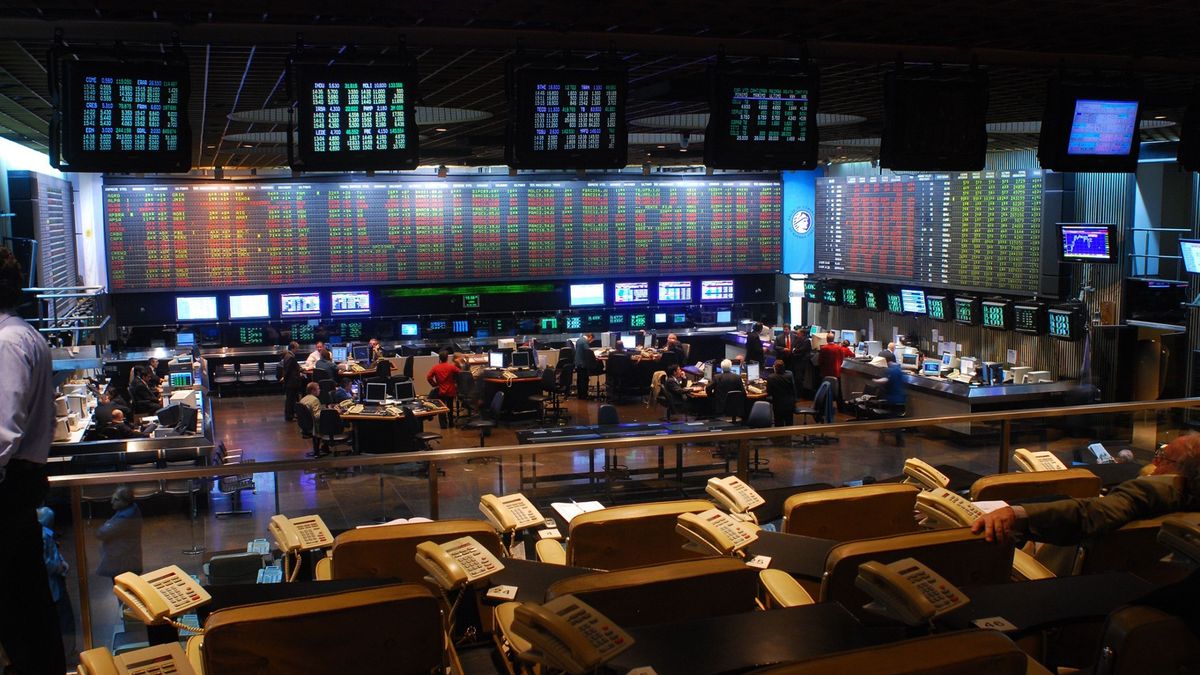Helped by the general improvement in emerging market debt, Argentine securities denominated in US currency closed with majority of raises, with the leadership of the Global 2046, which jumped 7.3%. Other solid promotions were recorded by the Global 2035 (+2.4%); the Bonar 2030 (+2.3%); and the Bonar 2035 (+1.7%).
The weighted average price of Globals rose to US$33.33 and hit its highest level since last February 23 (pre-war). In this way, the balance in the month now became positive with increases of between 1.2 and 4.6%.
A) Yes, the Argentine country risk fell 0.6% to 1,733 units, compared to the 1,083 points registered in 2020 after a millionaire restructuring of private debt and a historical maximum of 1,991 units recorded at the beginning of this month. In 4 consecutive days, it registers a decrease of 5.7% or 104 points.
Similarly, operators are cautious given the complex scenario to comply with what was agreed with the IMF, which basically extends maturities until 2034, with quarterly macroeconomic controls. “Every bond buyer is thinking about a restructuring from 2023 onwards, when the country’s payment schedule gets complicated. But at these prices, even in an aggressive restructuring scenario and with some haircut, there is still value,” said Ariel Manito, from Portfolio Personal Investments (PPI).
“The ‘Extended Facilities’ agreement with the IMF was approved last week, but with a not very friendly statement (…) that highlights the need for structural reforms and that in turn advances the first review of the program for May, therefore, it becomes imperative that the Government get out of the dynamic ‘let’s see'”, they said from StoneX.
From Research for Traders, meanwhile, they commented that “The bonds reacted positively to the final approval of the agreement, although many investors have doubts about the future of the domestic economy and whether Argentina will be able to comply with the reduction of the fiscal deficit agreed in the ‘Extended Facilities’ plan.”
For Lucas Yatche, Financial Advisor at Liebre Capital, “the securities in dollars increase their correlation with the rest of the emerging markets, which are extremely sensitive to the evolution of the progress of the war in Russia. This week’s start with something higher optimism in the negotiations between countries was seeing some demand in the titles”.
On the other hand, Yatche believes that “Politics will be a catalyst driver in local assets in the coming months, starting with the fulfillment of goals with the IMF, the division of the ruling coalition, opposition and unions, and more in the medium term, pointing to the presidential elections that will take place they will begin to feel little by little”.
It is worth noting that the reserves of the Central Bank (BCRA) climbed to just over 43.2 billion dollars on Friday, from almost 37 billion previously accounted for, due to the disbursement of the IMF as support for the agreement reached between the parties.
In the meantime, the BCRA would raise its benchmark rate by at least 150 basis points in April to a range between 46% and 48% nominal annual rate (TNA) due to the high rate maintained by domestic inflation, according to a Reuters poll of financial market traders and analysts.
In the peso segment, meanwhile, bonds tied to the consumer price index (CPI) meet the highest demand as inflation is projected to be as high as nearly 60% by 2022. Against this, these titles recorded gains of up to 1% (TC23).
For their part, bonds linked to devaluation (dollar-linked) rose, especially in the short part of the curve (TV22 gained 0.5% and already yields +2%).
With selectivity and business prudence, on the other hand, the S&P Merval index of the Buenos Aires stock market lost 0.5%, to 91,214.42 points, against a decline of 1.5% the day before, affected by the sharp drop in the CCL dollar, and in contrast to the performance of global markets.
The most notable falls were suffered by the shares of Cresud (-6.7%), Pampa Energía (-4%), and Comercial de Plata (-3.7%). No assets with increases were recorded.
The volume in shares fell 10% and ended below $900 million ($848.6 million), representing less than 22% of what was traded in equities. Thus, the remaining 78% was operated in Cedears, whose daily amount added 2.2% to $2,960 million.
On Wall Street, for its part, the papers of Argentine companies ended unevenly, with rises led by Mercado Libre (+2.6%); IRSA Properties (+2.1%), and Loma Negra (+1.6%). At the other end, ended the assets of Cresud (-5.4%), Given the sharp drop in agricultural commodities (wheat fell 4.4%), Pampa Energía (-2.7%), and Vista Oil & Gas (-2.5%).
US stocks rose for the fourth consecutive session (Dow Jones and S&P 500), on optimism that some progress is being made towards an agreement to resolve the war between Russia and Ukraine. Moscow has pledged to scale back military operations around kyiv and in northern Ukraine, while Ukraine has proposed adopting a neutral status, the first sign of progress toward peace in weeks.
Oil and other commodity prices fellwhich helped calm concerns about rising inflation and the path of the Federal Reserve’s monetary policy, which has started raising interest rates to combat rising prices.
The Dow Jones rose 1% to 35,294.19 points, while the S&P 500 gained 1.2% to 4,631.6 points. The Nasdaq added 1.8% to 14,619.64 units. The S&P500 accumulates on four wheels a rise of 3.9%.
For its part, the 10-year US Treasury bond rate fell 6 points to 2.39%.
Source: Ambito
David William is a talented author who has made a name for himself in the world of writing. He is a professional author who writes on a wide range of topics, from general interest to opinion news. David is currently working as a writer at 24 hours worlds where he brings his unique perspective and in-depth research to his articles, making them both informative and engaging.




